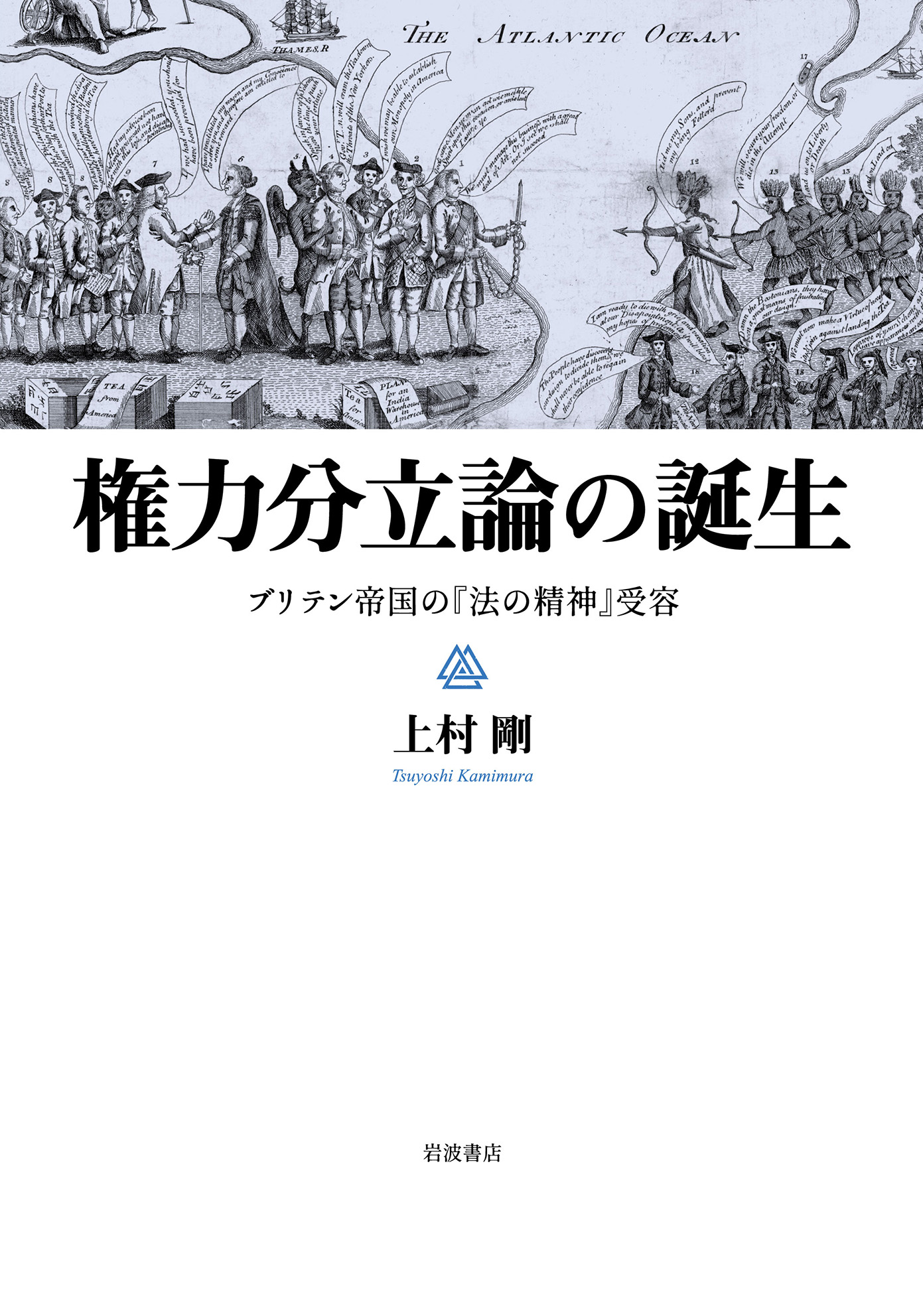
Title
Kenryoku-Bunritsu-ron no Tanjo (The Origin of the Separation of Powers - How The Spirit of Laws was Received in the British Empire)
Size
352 pages, A5 format, hardcover
Language
Japanese
Released
March 23, 2021
ISBN
9784000614603
Published by
Iwanami Shoten
Book Info
See Book Availability at Library
Japanese Page
When I was a law undergraduate, a junior student asked me if there were any new discoveries in the history of political thought. I was hard-pressed to respond, having little specialized knowledge at the time. Given that the prominent texts of political thought had been pored over for centuries by numerous scholars, it seemed unlikely that there was anything new to discover after all this time. Still, I fear that my faltering response may have given the person the misconception that the history of political thought has reached a standstill.
Now, ten years later, if an undergraduate were to ask me the same question, I would say that the history of political thought is a riveting discipline, one that offers fresh surprises at every turn.
Research in this field is constantly being updated. For a start, new texts have been discovered. Secondly, there is the question of which texts to focus on. It is possible that our understanding of what a thinker’s seminal text is (in the case of Plato, the seminal work might be The Republic) and whom we identify as the key thinker of a certain time period (we may, for example, identify Locke as the key political thinker of the 17th century) is influenced by the way the texts were interpreted by later generations. Finally, and in relation to the second point, there is the question of how we interpret a given text. A thinker’s work is ultimately an aggregation of individual sentences. Readers, in the way they interpret the role of each word, phrase, or sentence in the author’s overall thesis—as well as how they interpret the odd contradiction—set the stage upon which the author’s distinctive ideas are expressed. Here, an infinite range of interpretations and reinterpretations are possible.
Consequently, what we today regard as an orthodox interpretation may be overturned in time. The conventional notion that Hobbes was an absolutist and that Locke was a liberal does not stand up to scrutiny today. It is tempting to take a textbook-like approach by associating thinkers with key phrases, such as associating Hobbes with Bellum omnium contra omnes (“the war of all against all”), Rousseau with “general will,” and Weber with an “iron cage.” But when we do this, we risk limiting the interpretational range for the thinker in question.
Another example to add to the list is the association of Montesquieu with the phrase “separation of powers.” This simplification fails to account for the thinker’s many distinctive idiosyncrasies. Savants know all this already, of course, but I go a step further by asking why Montesquieu came to be pegged with the separation of powers. Of interest here is how readers in the British Empire of the time responded to Montesquieu’s The Spirit of Laws. I trace the process by which the reading of this book engendered, unintentionally, a new political principle. This analysis reveals the limitations in the notion that Montesquieu was the progenitor of the separation of powers and the notion that this idea was a product of Madison and the US Constitution. Much more important were the texts that lay somewhere between the two—texts whose authors are all but forgotten today. I focus on these texts and reveal their importance.
If any students believe that there is nothing new to discover in the history of political thought, then I would humbly urge them to read this book. Many new discoveries await them.
(Written by: KAMIMURA Tsuyoshi / February 04, 2022)
Related Info
The 43rd (2021) Prize Winner (History and Civilization) (Suntory Foundation Nov 11, 2021)
https://www.suntory.com/sfnd/prize_ssah/
The 1st UTokyo Jiritsu Award for Early Career Academics (The University of Tokyo 2020)
https://www.u-tokyo.ac.jp/ja/research/systems-data/n03_kankojosei.html



